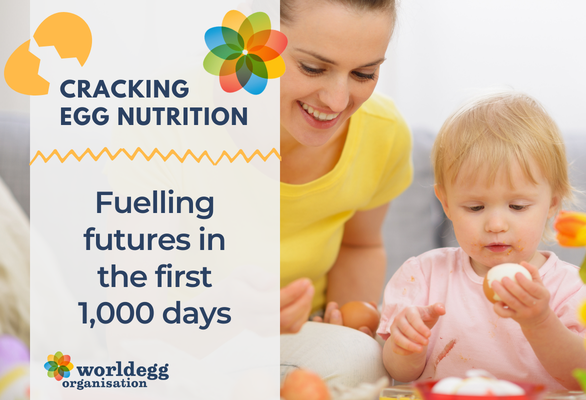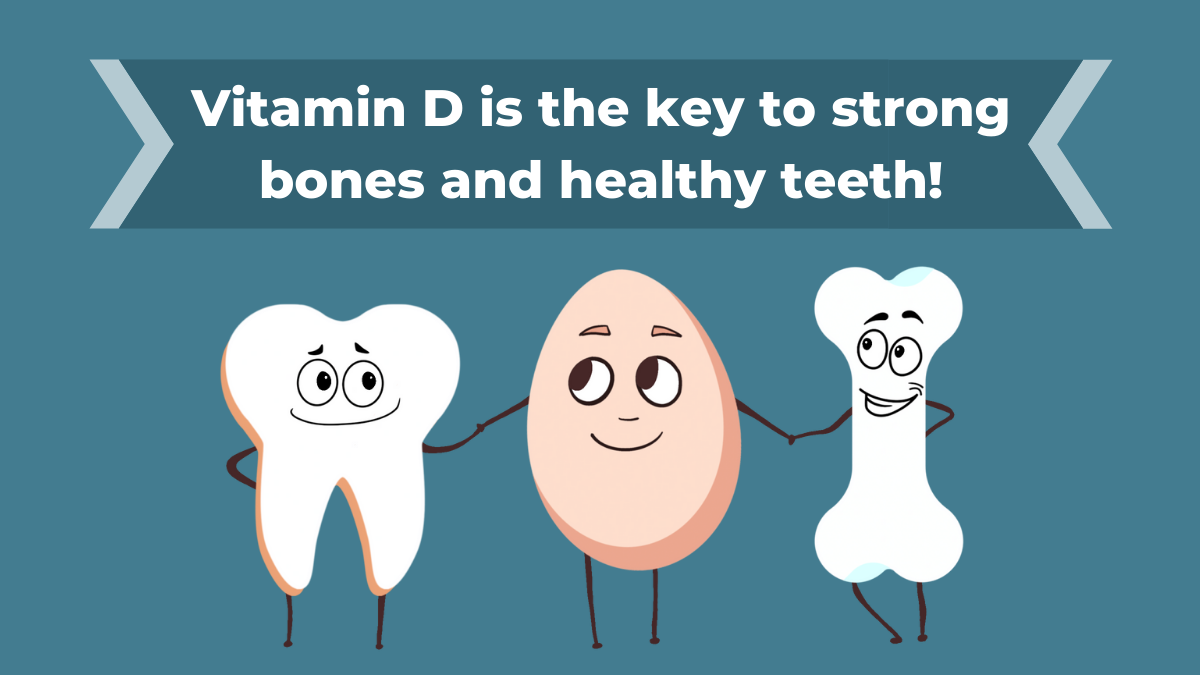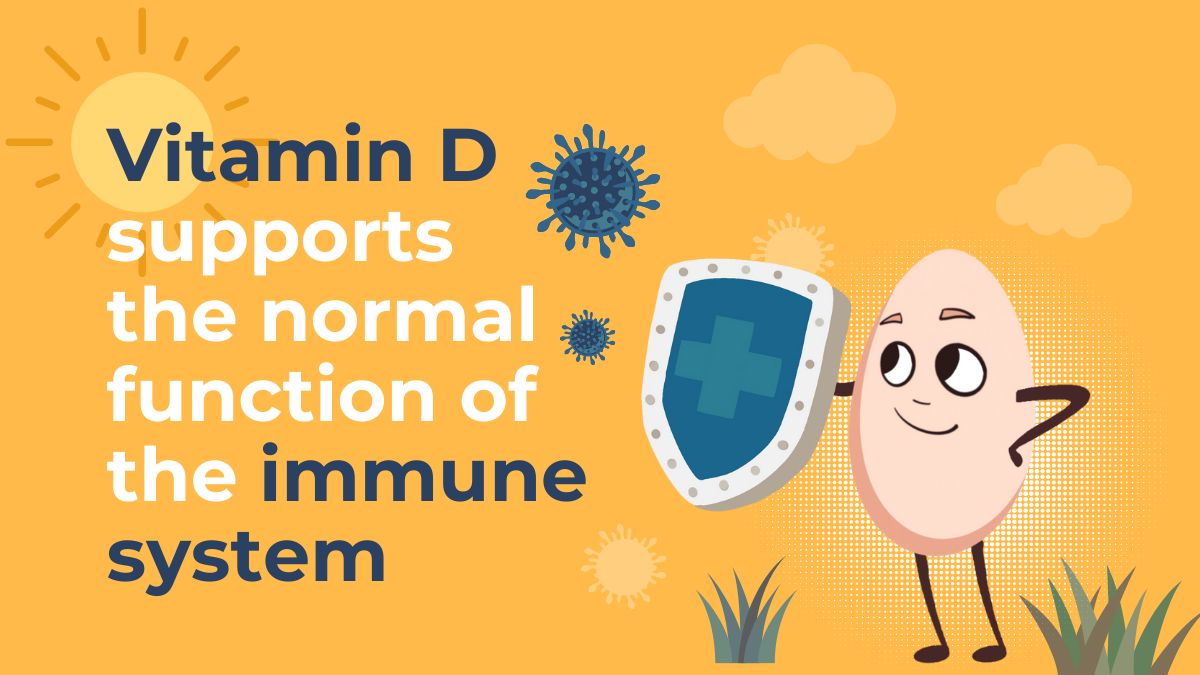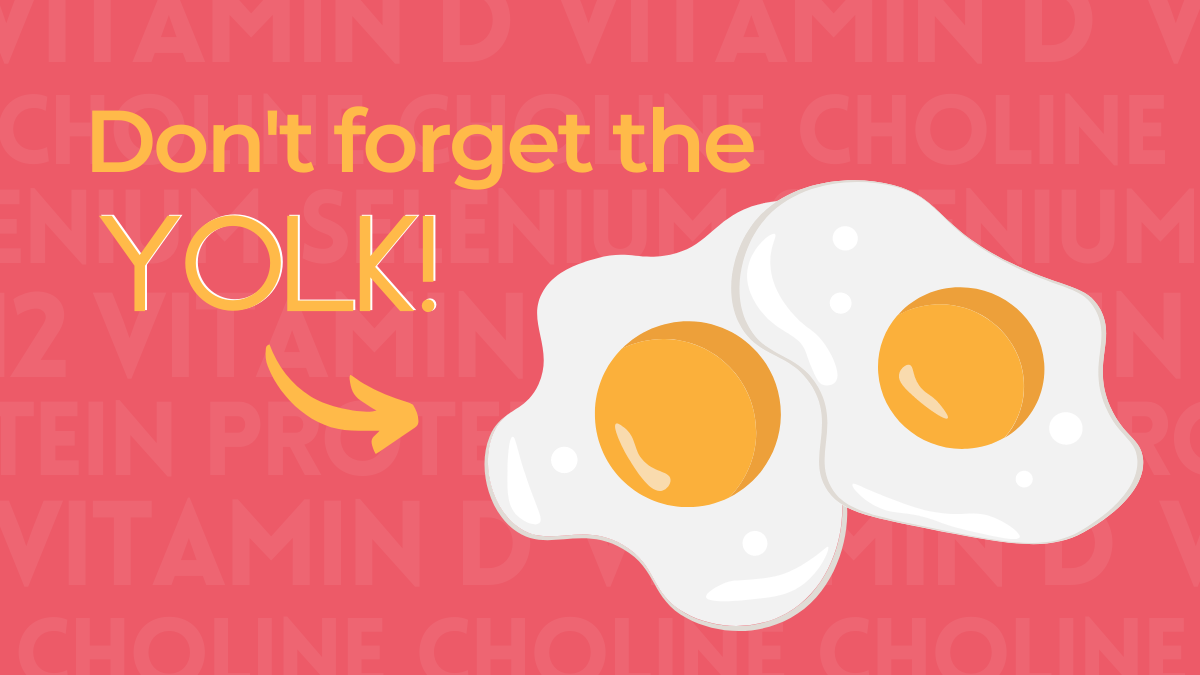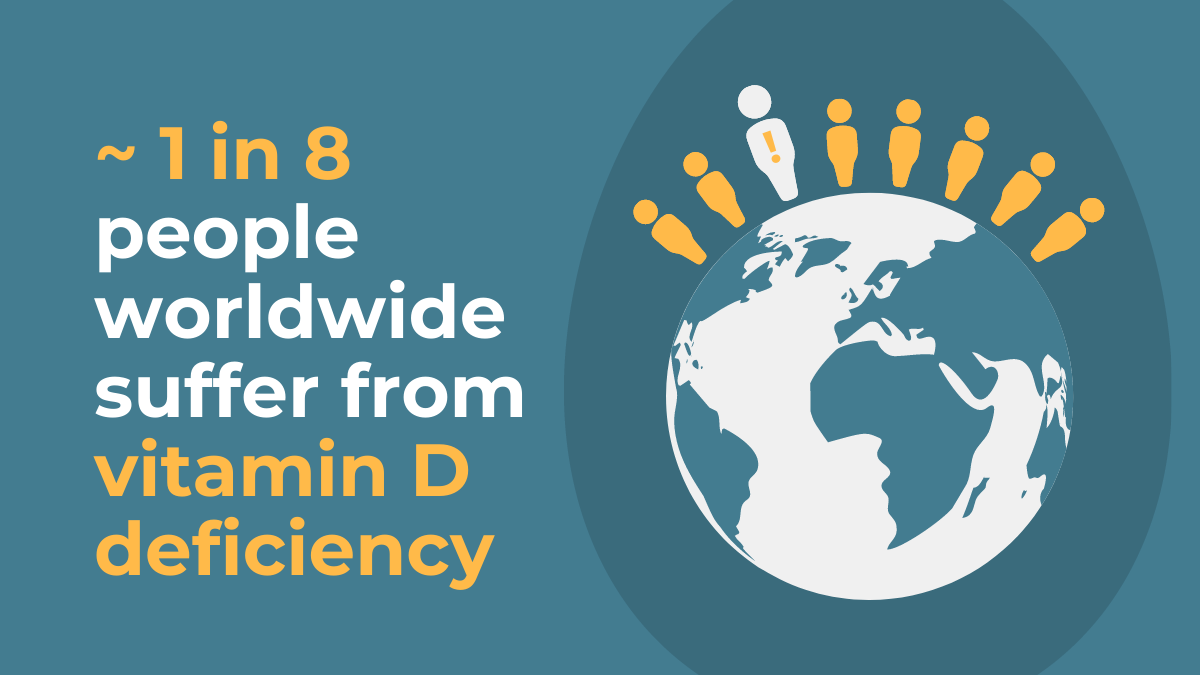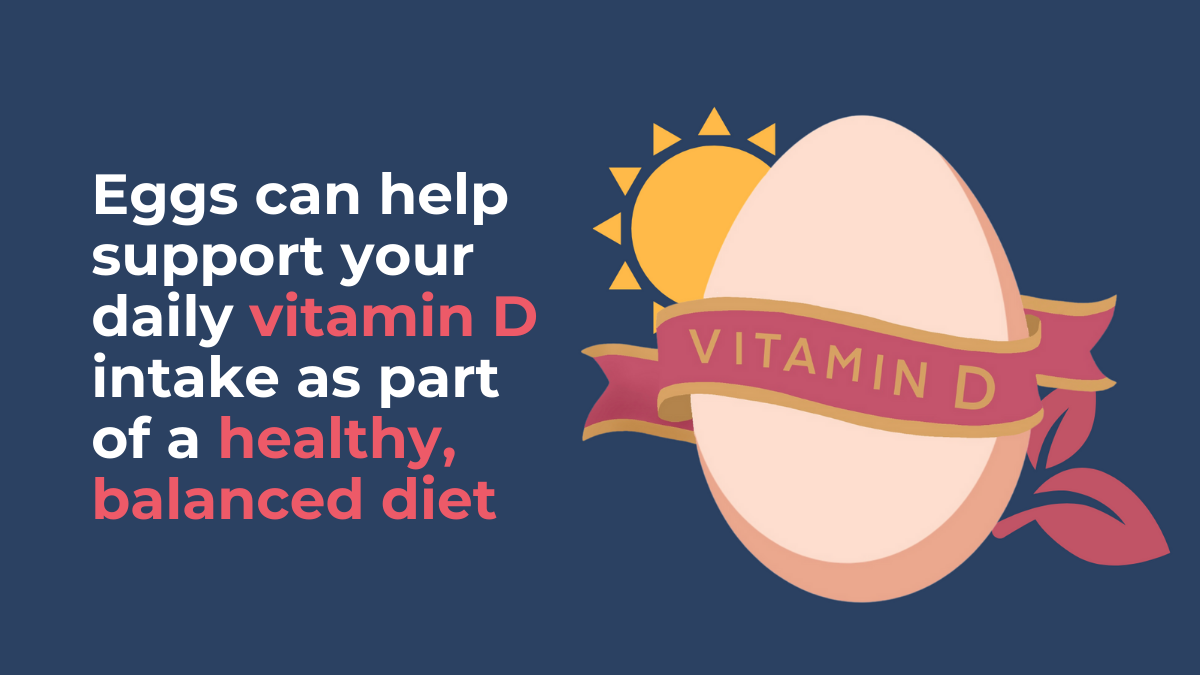Cracking Egg Nutrition: Vitamin D served sunny side up
Known as ‘the sunshine vitamin’, vitamin D plays an essential role in keeping our bodies healthy, especially our bones and immune system! Yet people all around the world do not reach the required intake, making them more vulnerable to injury and illness. As one of the few natural food sources of this vital vitamin, let’s explore why eggs are a great sunny-side-up solution to this detrimental deficiency!
Why do we need vitamin D?
Vitamin D is a fat-soluble vitamin made by the body when sunlight hits the skin. It can also be obtained from certain foods and through supplements.
The most widely used recommended dietary allowance (RDA) is 600 IU (15mcg) daily for adults up to the age of 69, and 800 UI (20 mcg) for people over 701. However, the amount of vitamin D you actually need from your diet depends on many factors, including age, ethnicity and time of year.
Chair of the International Egg Nutrition Centre’s (IENC) Global Egg Nutrition Expert Group and CEO of Egg Farmers of Canada, Tim Lambert, explains: “While the sun is our main source of vitamin D, most people cannot get all they need from the sunlight alone. The amount of vitamin D we need in our diets all depends on where we live in the world, the time of year, and our lifestyles. For example, a person who works outside all day in sunny weather will need to source less from their food than an office worker in a colder climate.”
Vitamin D plays a crucial role in helping us maintain our health. Its primary function is to support the absorption and metabolism of calcium and phosphorus, maintaining bone strength, healthy teeth and skeletal integrity2–4. Without enough vitamin D, the body can only absorb 10-15% of dietary calcium, compared to the 30 – 40% absorption when vitamin D requirements are met1.
Vitamin D also helps regulate and maintain a strong immune system, with a lack of this ‘sunshine vitamin’ causing increased risk of infections and autoimmune diseases3–5.
In addition to these primary benefits, research suggests that vitamin D may also play a role in reducing depression6–9, protecting against some cancers1,6, and fighting acute respiratory infections, including colds and flus6, 10–12.
“There are many reasons to ensure you reach the recommended intake of vitamin D” says Mr Lambert, “and as one of the few natural food sources, eggs can help you do it!”
Eggs, a natural source of vitamin D
Sunlight is the best source of vitamin D, so it can be a challenge to reach the required amount during the winter months or in regions that see little sun – especially as very few foods naturally contain this important nutrient.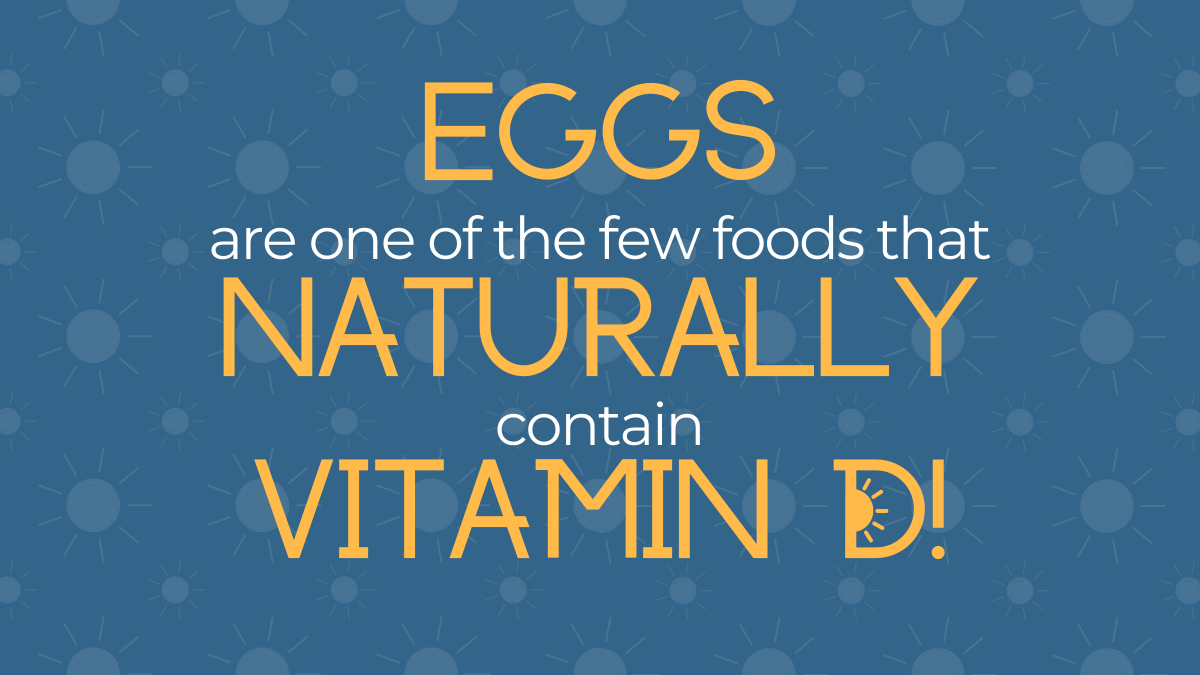
As a result, many people turn to vitamin D supplements and fortified foods to help them reach their daily needs. Alternatively, enjoying eggs as part of a healthy balanced diet can support you to meet your requirements. One of the few natural sources, a large egg contains around 43 UI (1mcg) of vitamin D13.
“As well as being delicious, eggs are a wonderfully nutritious food, containing high-quality protein and many essential nutrients, including vitamin D,” explains Mr Lambert, “Eggs are also readily available and a much more affordable option compared to vitamin D supplements, making them an ideal choice for many people.”
Since the vitamin D in an egg comes from its yolk, it’s important to use the whole egg—not just the whites.
The dangers of vitamin D deficiency
Vitamin D deficiency is a problem all over the world. Insufficiency affects almost 50% of the global population and an estimated 1 billion people across all ethnicities and age groups suffer from vitamin D deficiency1,14.
Low levels of vitamin D lead to low bone calcium stores, which can cause thin, brittle, or misshapen bones. This in turn can increase the risk of fractures and may result in disorders like osteoporosis and rickets1, 15.
While vitamin D deficiency can affect anyone, some people are at a greater risk for a variety of reasons. As pigmentation can reduce vitamin D production in the skin by over 90%, people with naturally dark skin are more susceptible1, 16.
Furthermore, those who have a condition that restricts vitamin D absorption from the diet will put them at greater risk16. For example, deficiencies are common in patients with kidney or liver diseases that reduce the conversion of vitamin D to its active form1.
Even in healthy people, advancing age can be a huge factor, largely due to elderly people often being less mobile outdoors and therefore not absorbing enough vitamin D from sunlight1,16.
For many, balancing the positive effects of vitamin D with the negative effects of too much sunlight poses a challenge, as Mr Lambert explains: “Something as simple as avoiding sunshine by opting for the shade and using sunscreens to protect our skin from the harmful effects of ultraviolet radiation can mean we are not getting the vitamin D we need, even in the summer months.
“Accessible and affordable foods like eggs, which naturally contain vitamin D as well as many other essential nutrients, can support you to meet your daily requirements without putting yourself at risk of the dangers of too much direct sunlight.”
We have cracked it!
Vitamin D is crucial in supporting strong bones and skeletal integrity, as well as maintaining immune function. Studies also suggest it can reduce the risk of certain diseases, help improve mood, and fight off colds and flus.
“There are many factors that can lead to vitamin D deficiency, and that is why it is so prevalent worldwide.” Mr Lambert summarises, “Whatever lifestyle you lead or region you live in, eggs are a healthy, readily available natural source of vitamin D, helping to support your daily intake as part of a balanced diet.”
References
3 Food Standards Australia New Zealand (FSANZ)
Promote the power of the egg!
To help you promote the nutritional power of the egg, the IEC has developed a downloadable industry toolkit, including key messages, a range of sample social media posts, and matching graphics for Instagram, Twitter and Facebook.
Download the industry toolkit (Spanish)About Tim Lambert
Tim Lambert is Chair of the International Egg Nutrition Centre’s (IENC) Global Egg Nutrition Expert Group and CEO of Egg Farmers of Canada. He is currently the President of the International Egg Commission (IEC), and Chair of numerous committees at the international level. Tim is also the Chair of the International Egg Foundation (IEF), whose purpose is to increase egg consumption in developing countries, to provide undernourished families with an independent, sustainable, high-quality protein supply.
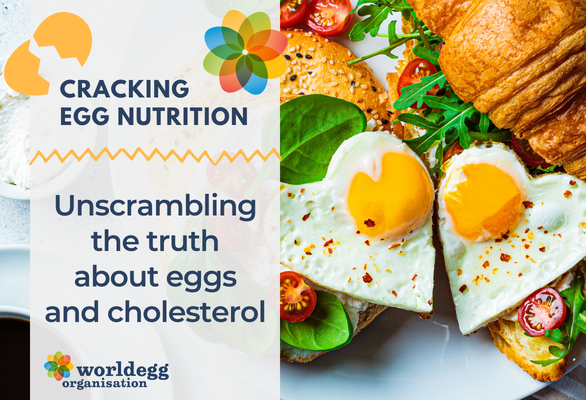
Unscrambling the truth about eggs and cholesterol
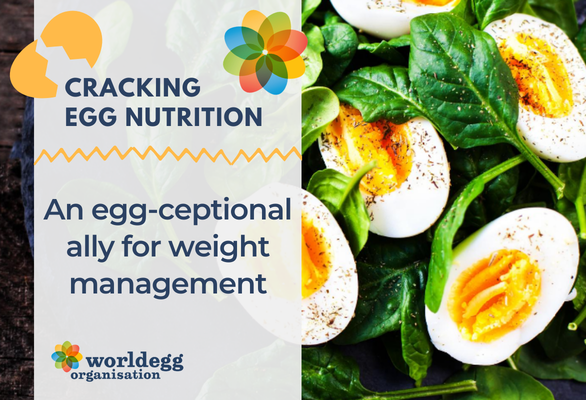
An egg-ceptional ally for weight management
